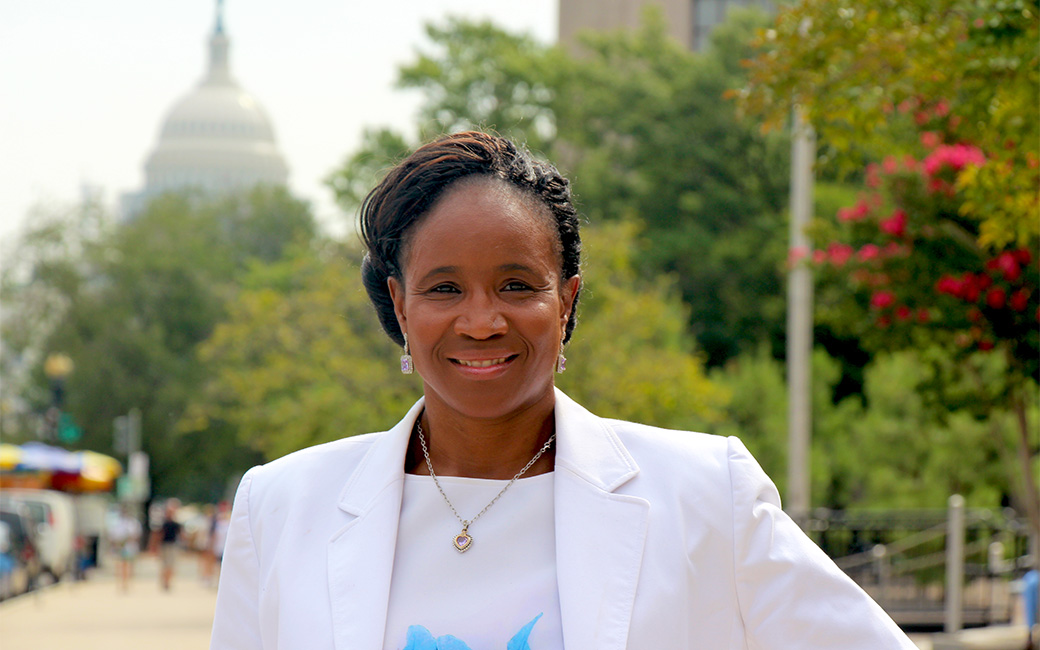Nicole Faison
Alumna: Business Administration '97

Nicole Faison has used her business know-how to help federal agencies build powerful anti-fraud tools using IT systems, predictive analytics and data to save the government money and protect consumers. She is currently Deputy Director at the U.S. Department of Health and Human Services, Office of Inspector General.
While working for the city of Baltimore’s Housing Authority after graduating from Towson University, Nicole Faison ’97 saw not just a fair share of fraud, waste and abuse, but the rippling effects they have. People who truly needed help with housing were not getting it because others were defrauding the system.
Having a business mindset from her undergraduate degree and extensive work experience, Faison worked to improve efficiencies where she could. But she realized she needed to think bigger to make a true difference.
“I thought ‘I want to be able to change these programs, so they can serve as many families as possible,’” she recalls. “’The only way I can do that is by going to the federal level.’”
Faison decided to learn all she could working for the city and set a long-term goal to get to Washington, D.C. Her opportunity came in the form of an internship with the U.S. Department of Housing and Urban Development (HUD) just after completing her MBA from Strayer University.
“ I thought ‘I want to be able to change these programs, so they can serve as many families as possible. The only way I can do that is by going to the federal level.’ ”
“Within a month, someone in leadership was looking to combat fraud in the rental assistance program,” Faison says. “She read my independent study from graduate school on using game theory to eliminate fraud in rental assistance programs. She loved it and offered me a job.”
For years, HUD grappled with recipients of its assistance programs under-reporting their earnings with no streamlined way to check these recipients’ actual incomes. Faison oversaw the development of the agency’s Enterprise Income Verification system, which allows public housing authorities nationwide to check employment and income information for public housing and Section 8 tenants. The system has saved the government $2 billion in improper payments and allowed more families that qualify for assistance to access it.
“It was a huge undertaking, and I never imagined it would have that kind of impact,” she says.
Faison's work didn't end there. She also led the development of a predictive analytics program at HUD’s Office of the Inspector General to detect fraud in other HUD programs. The system links millions of mortgage transactions to individuals and finds anomalies using advanced analytics techniques to proactively target scammers selling predatory reverse mortgages to senior citizens.
Faison is continuing her legacy of implementing big-data solutions to combat waste and fraud at the Office of Inspector General for the Department of Health and Human Services. She recently joined that agency as a Deputy Director to leverage data analytics to combat fraud in Medicare, Head Start, Energy Assistance and other HHS programs.
In a time when the federal government isn’t known for IT innovation and faces criticism for its collection of data, Faison is proud to use dynamic business analytics tools to stop fraud and waste to change that perception.
“I have achieved more than I could ever have envisioned,” she says. “It’s a self-fulfillment when you’re able to do something good that impacts a lot of people.”